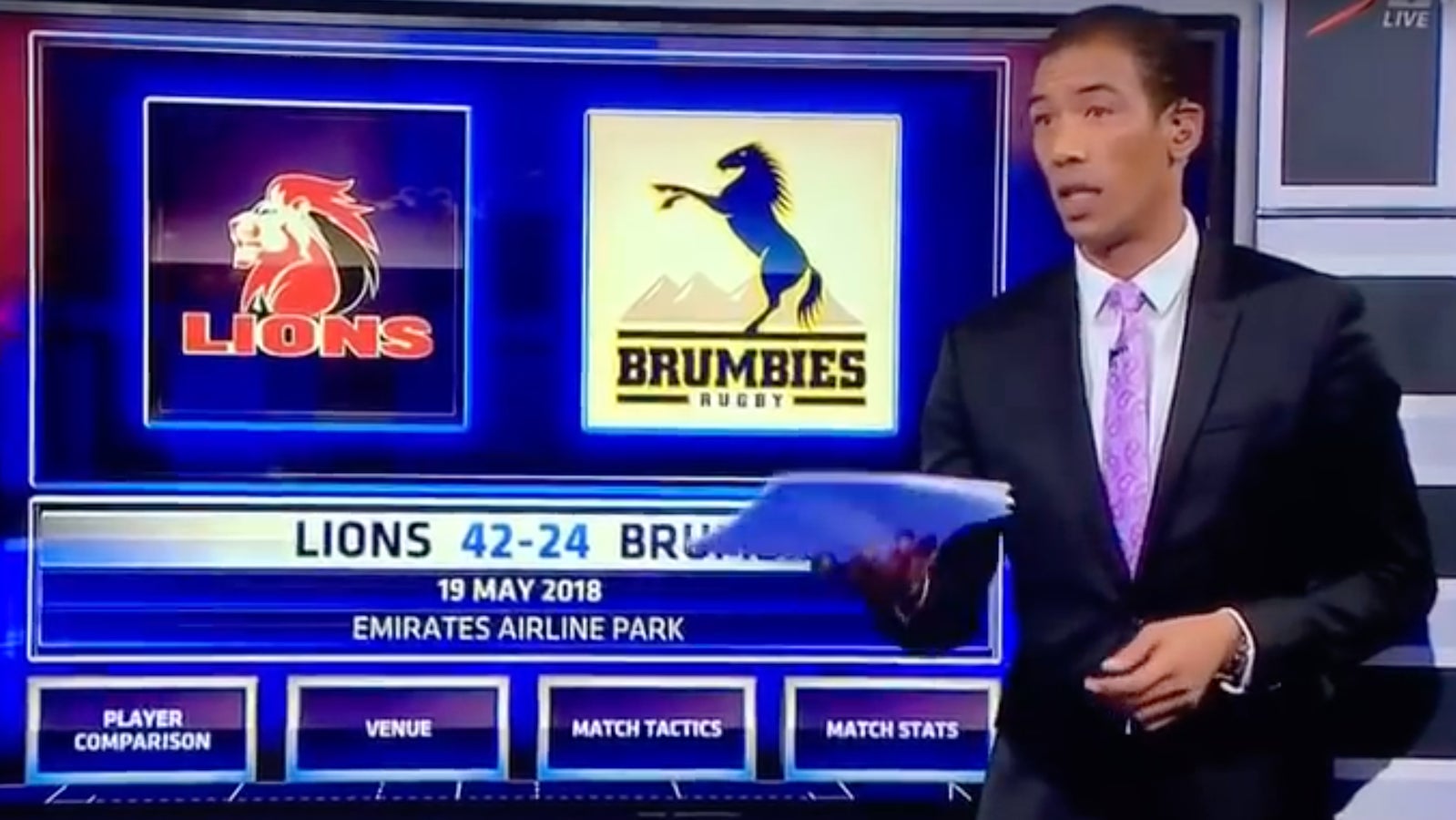A sportcaster’s walkout on live TV reminded South Africans how to stand up to subtle office racism
Sport has long been a litmus test for how South Africa is doing in its quest for racial reconciliation, whether on or off the field. This week, a disagreement between former-star-players-turned-commentators showed that the country still has a long way to go in both.


Sport has long been a litmus test for how South Africa is doing in its quest for racial reconciliation, whether on or off the field. This week, a disagreement between former-star-players-turned-commentators showed that the country still has a long way to go in both.
During their post-game analysis after a weekend match between Australian rugby team the Brumbies and South Africa’s Lions, some off-camera tension between former national team players Nick Mallet, Naas Botha, and Ashwin Willemse created an on-camera national incident when Willemse walked off the set. The minister of sport called for the pundits’ suspension on May 21, while lawmakers discussed it in parliament. Even a beer manufacturer tried to get involved, shedding its label as a sign of solidarity.
“I’ve played this game for a long time, like all of us here. And as a player, I was labeled a quota player for a longtime and as a player I’ve earned hard and worked hard to earn my own respect in this game,” said Willemse, a black player. “And I’m not going to be patronized by two individuals who played under apartheid, a segregated era and want to come and undermine.”
“I think for me, I’ve had my fair share. I can’t work with people that undermine other people,” Willemse said, calm but clearly irate as he unbuttoned his jacket and walked away from the touchscreen, dropping his pages of script on the desk in front of his colleagues.
Neither Willemse nor anyone else has said what sparked the incident. But moments before his walkout, it was clear that there was tension on the studio floor. In a series of quick awkward passes, presenter Motshidisi Mohono threw a question to Willemse, who redirected to Botha, who in turn threw back to Willemse, saying he’d had enough time to talk before the game.
“Let’s not patronize each other,” Willemse said. As the presenter awkwardly tried to bring the conversation back to the game, Mallet launched into a monologue of technical commentary, followed by Botha. It was when Mohono tried to return the conversation to Willemse that the former player launched into the speech that has now gone viral around South Africa.
Far fewer people cared about the Brumbies-Lions game than they did about Willemse’s anger. In rugby, a sport that has struggled to shed its image as a racist institution, Willemse’s words resonated with black players who still feel excluded, on and off the field. For years now, debates around the drafting of black players, supporting a black coach, and funding underprivileged players has plagued the game. It’s a far cry from the Mandela-era image created by the 1995 Rugby World Cup win, which inspired the film Invictus.
“We have always been magnanimous in giving them the benefit of the doubt and hoped upon hope that they would see their way clear in righting the wrongs of the past, but alas it is not so, as they glibly call on us ‘to move on’ and forget the past injustices,” the South African Rugby Union, formerly the South African Coloured Rugby Football Board under apartheid, said in a statement supporting Willemse.
For many watching at home and on social media, Willemse had experienced the kind of workplace micro-aggressions that are difficult to confront, but hurt just the same. Willemse’s walkout was hailed as an act of courage and an opportunity that many black South Africans have missed by being too shocked by subtle office racism to respond so quickly in the moment.
SuperSport, the sports channel owned by DStv, has launched an investigation into the matter but stated clearly that they believe there was no racial tension involved. Both Mallet and Willemse agreed to work through the matter, but Willemse’s response on Monday hinted at something much deeper: “The complexity of the issues is very profound,” he said.
Some reports suggest this may be a battle of egos, but for many it has taken on a far deeper meaning. The clashing pundits may not be saying much more, but the public outcry that followed showed that the country is willing to have an uncomfortable conversation about race.